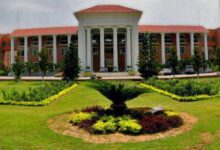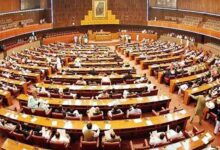Pakistan Ulema Council Demands Global Action to Safeguard Holy Quran’s Sanctity
Council's Chairman Emphasizes Respect for Religious Sites and Values, Rejects Desecration as Freedom of Expression
The Pakistan Ulema Council responded strongly to the recent incident of the Holy Quran being burned in Sweden by observing Quran Sanctity Day on Friday. The Council demanded swift international action to address this blasphemous act.
Hafiz Muhammad Tahir Mahmood Ashrafi, the Chairman of the Pakistan Ulema Council and the Prime Minister’s Special Representative on Interfaith Harmony and Middle East, condemned the desecration and emphasized that disrespecting any religious site, sacred book, or prophet should not be considered freedom of expression.
In reaffirming the core beliefs of Islam, Chairman Ashrafi stated, “For us, the Oneness of Allah Almighty, the finality of the prophethood of Muhammad (PBUH), the greatness and truthfulness of the Holy Quran, and the sanctity of Haramain Al-Sharifeen and Al-Aqsa are like the red line.”
He further emphasized that the desecration of the Holy Quran and the honor of the Holy Prophet Muhammad (Peace Be Upon Him) could not be justified as freedom of speech.
The Pakistan Ulema Council unequivocally expressed that the desecration of holy books, prophets, and heavenly scriptures was unacceptable to Muslims worldwide.
Calling upon the international community, the Council urged prompt and effective measures to address such acts that deeply hurt the sentiments of Muslims and violate the principles of religious tolerance and respect.
Quran Sanctity Day served as a reminder of the importance of respecting religious symbols and values, fostering understanding among different faith communities, and upholding freedom of religion while promoting harmony and peaceful coexistence.
The strong stance of the Pakistan Ulema Council against the desecration of the Holy Quran in Sweden reflects the sentiments of Muslims globally. The Council urges a collective effort to prevent such incidents in the future and protect the sanctity of religious beliefs.





